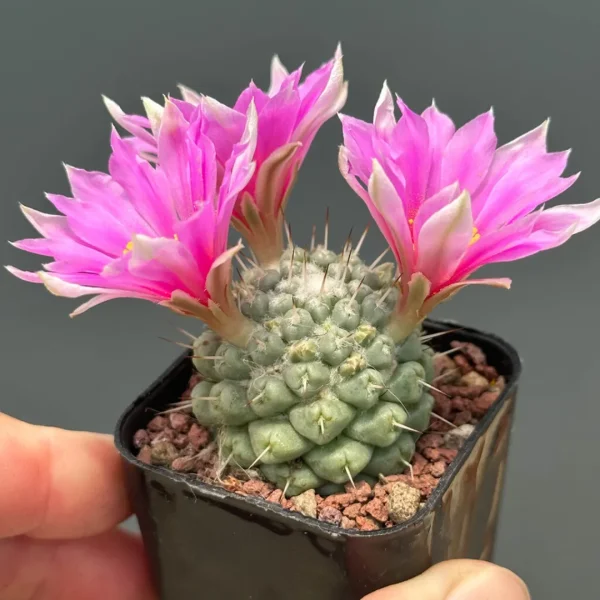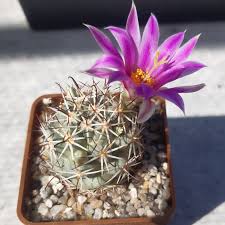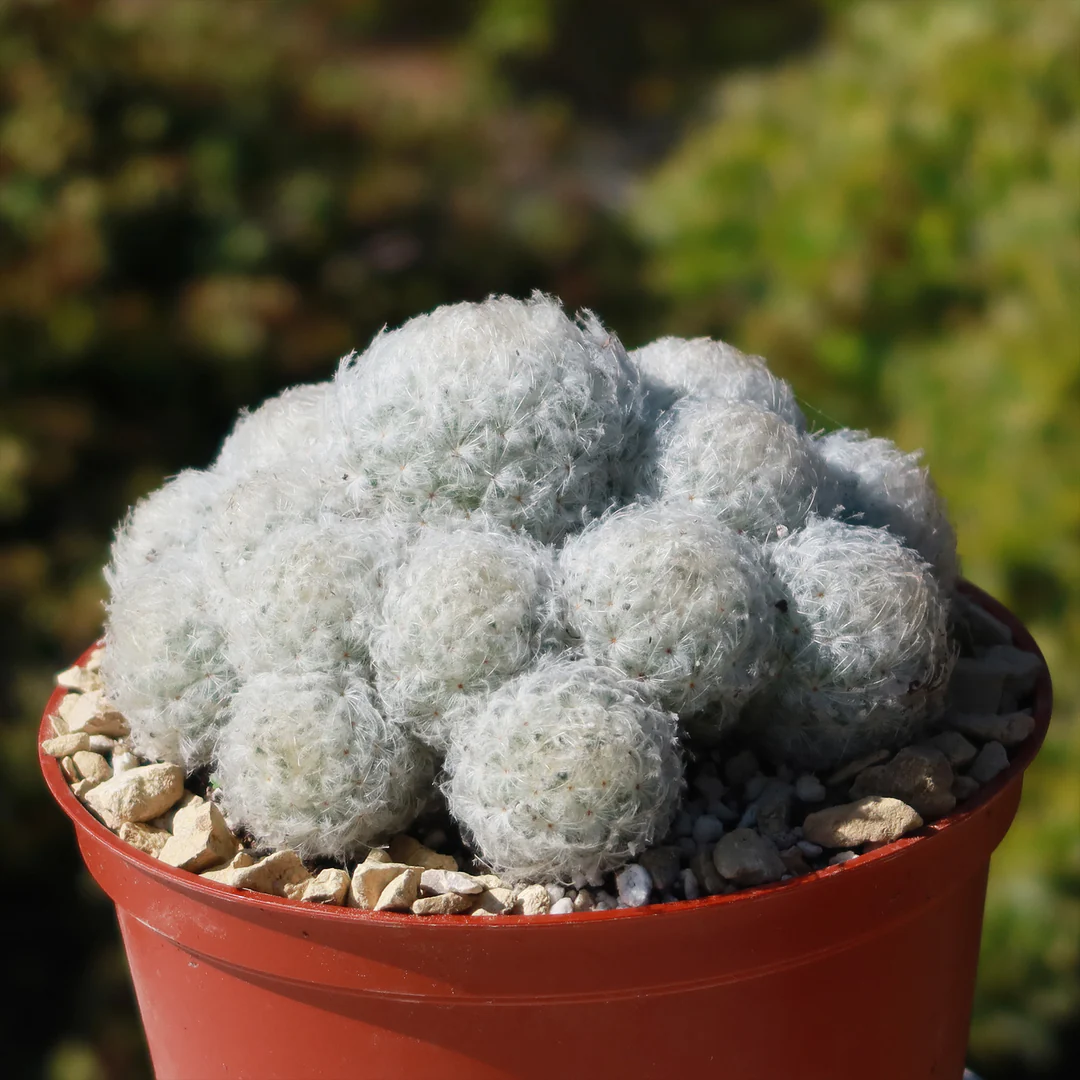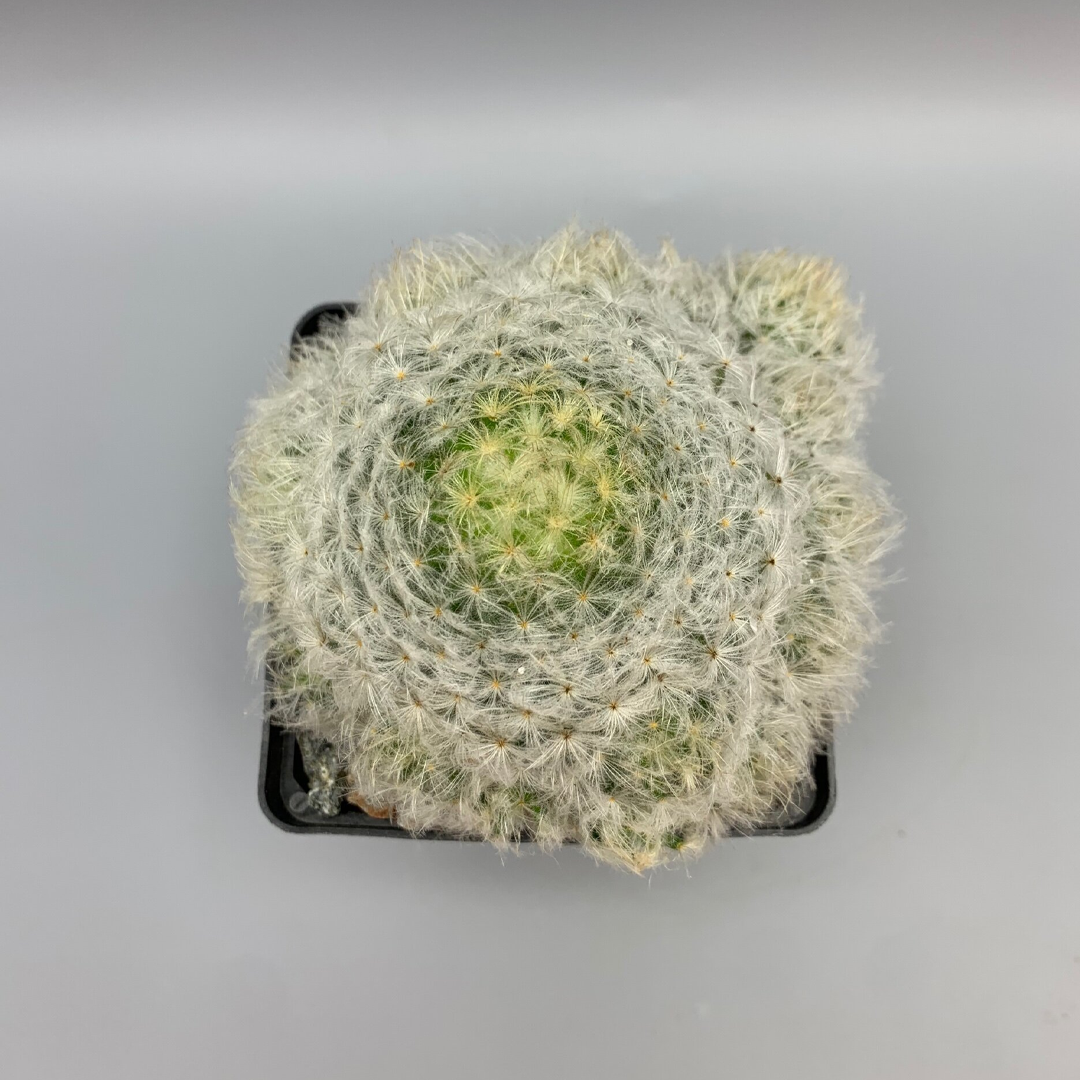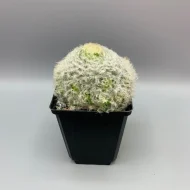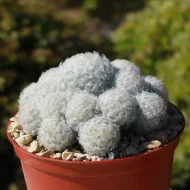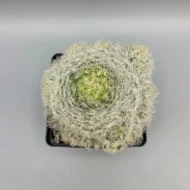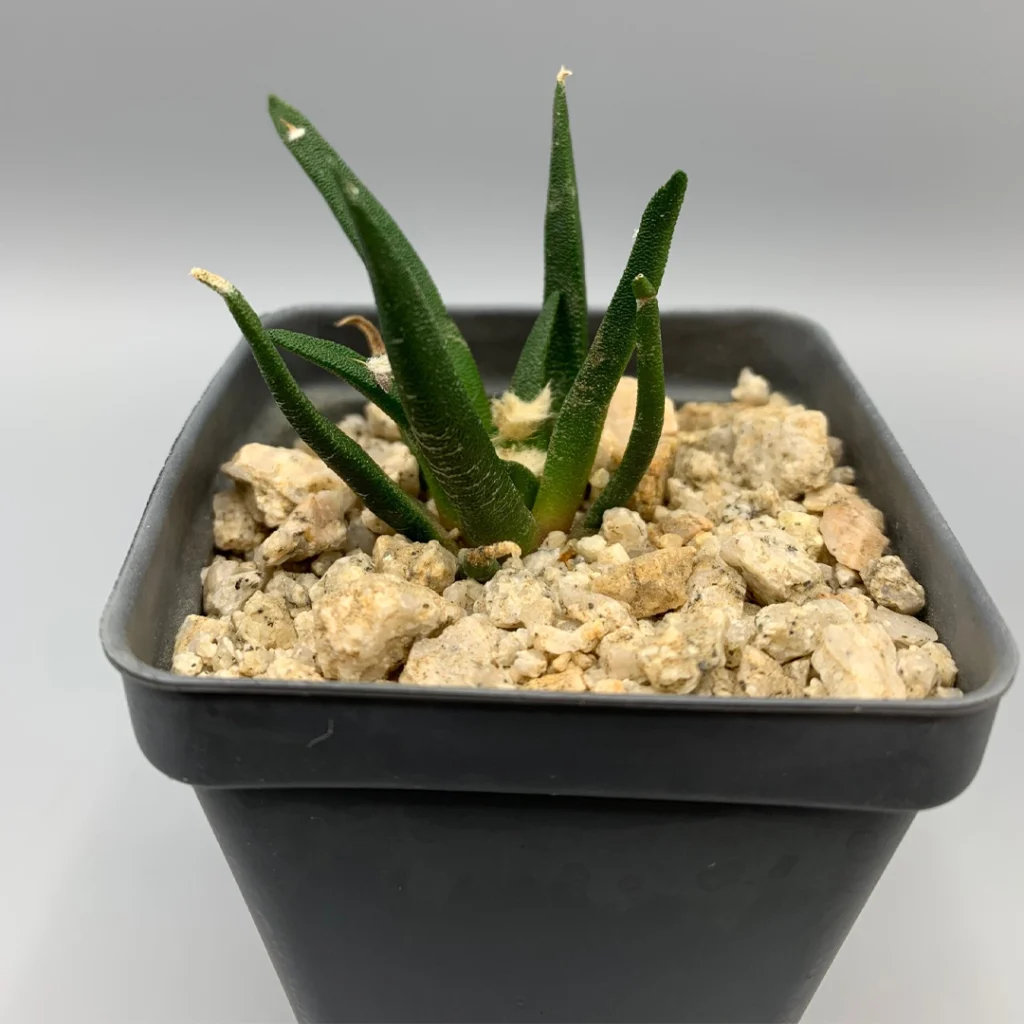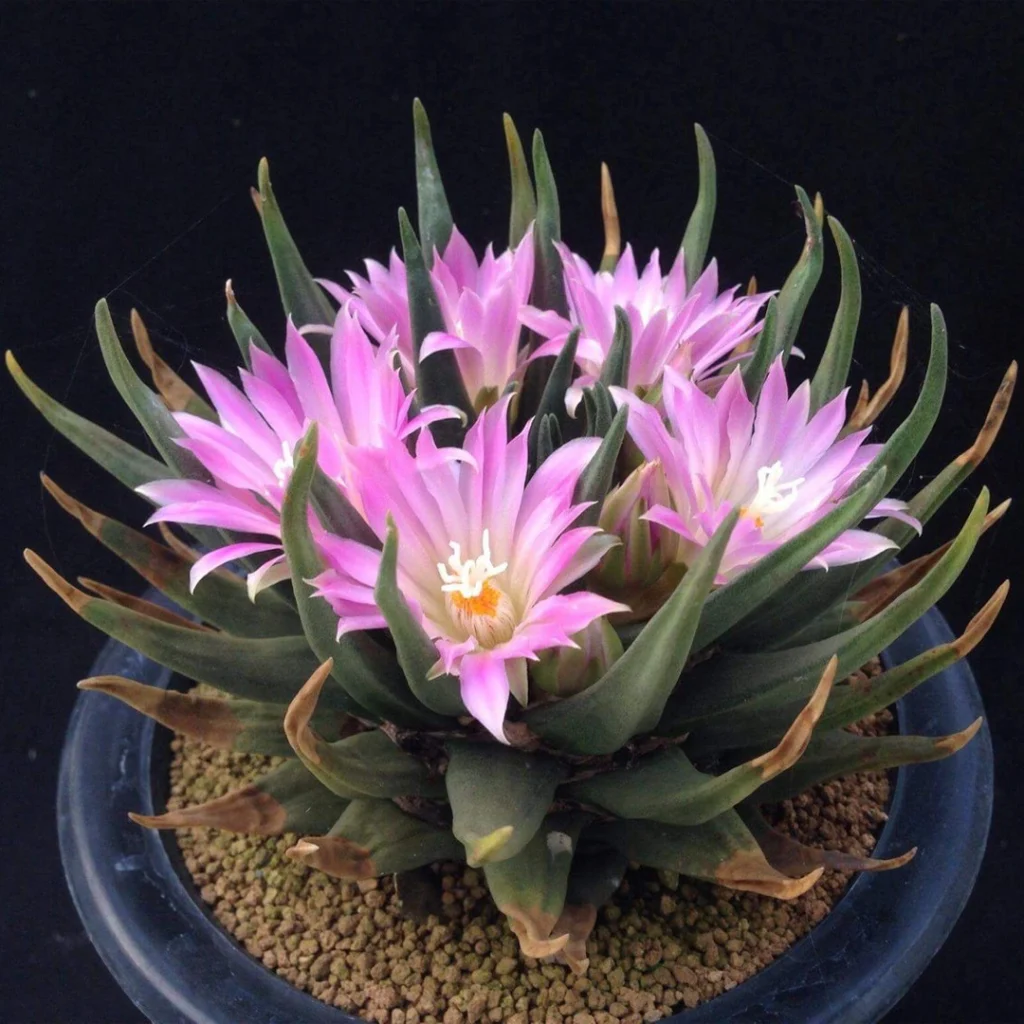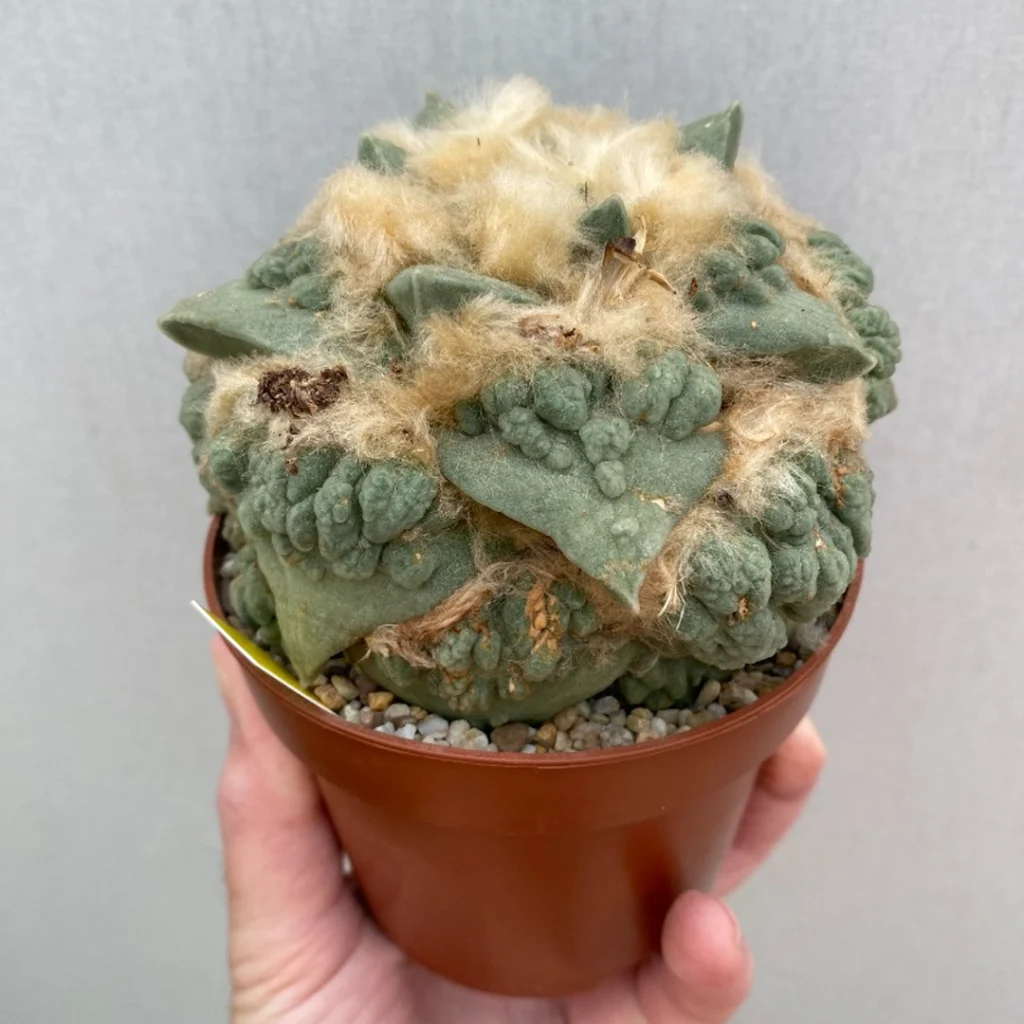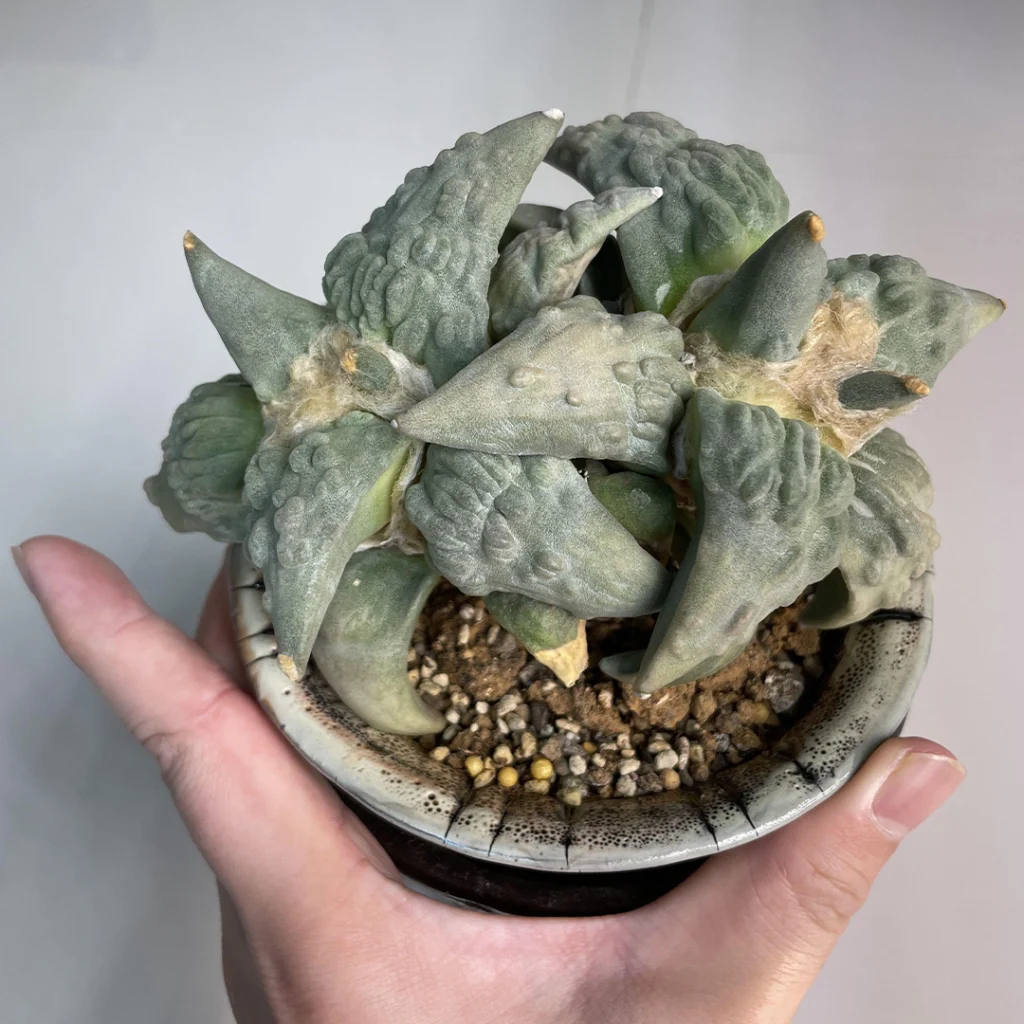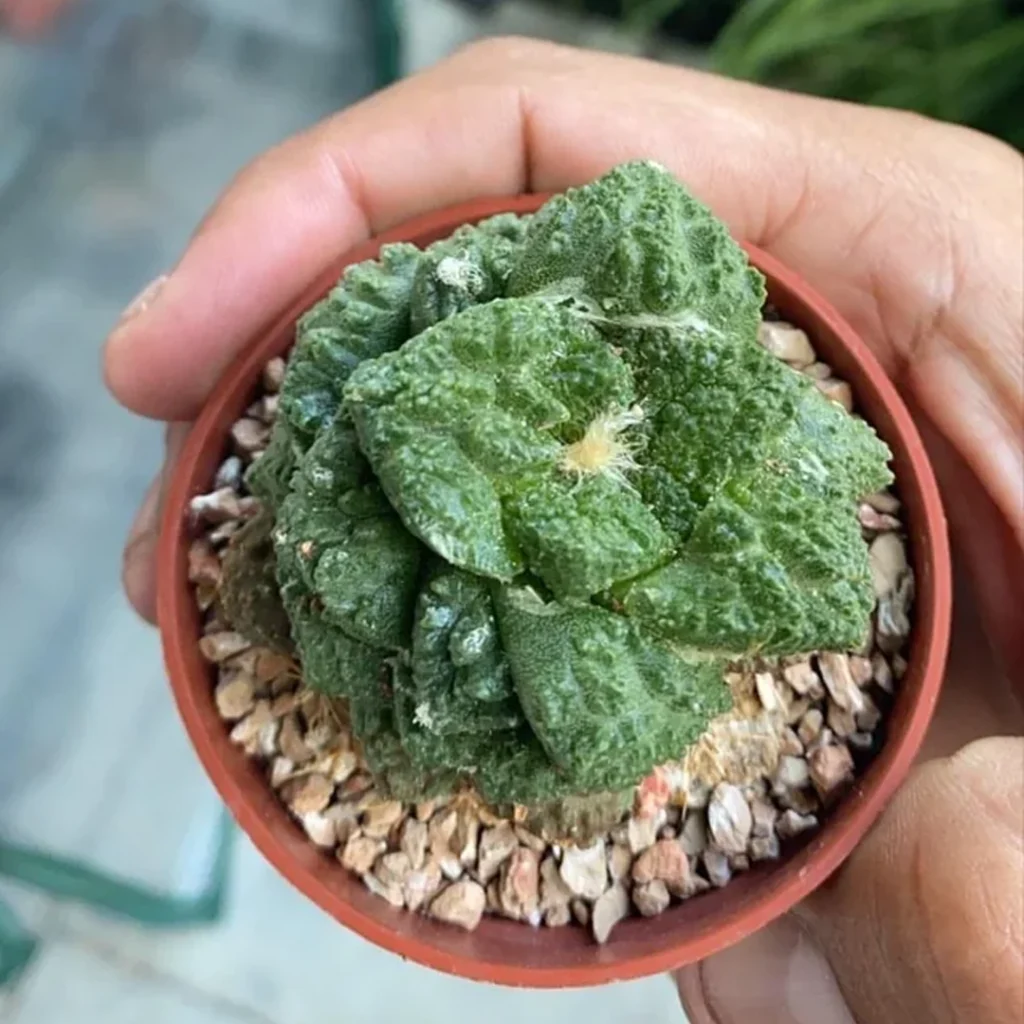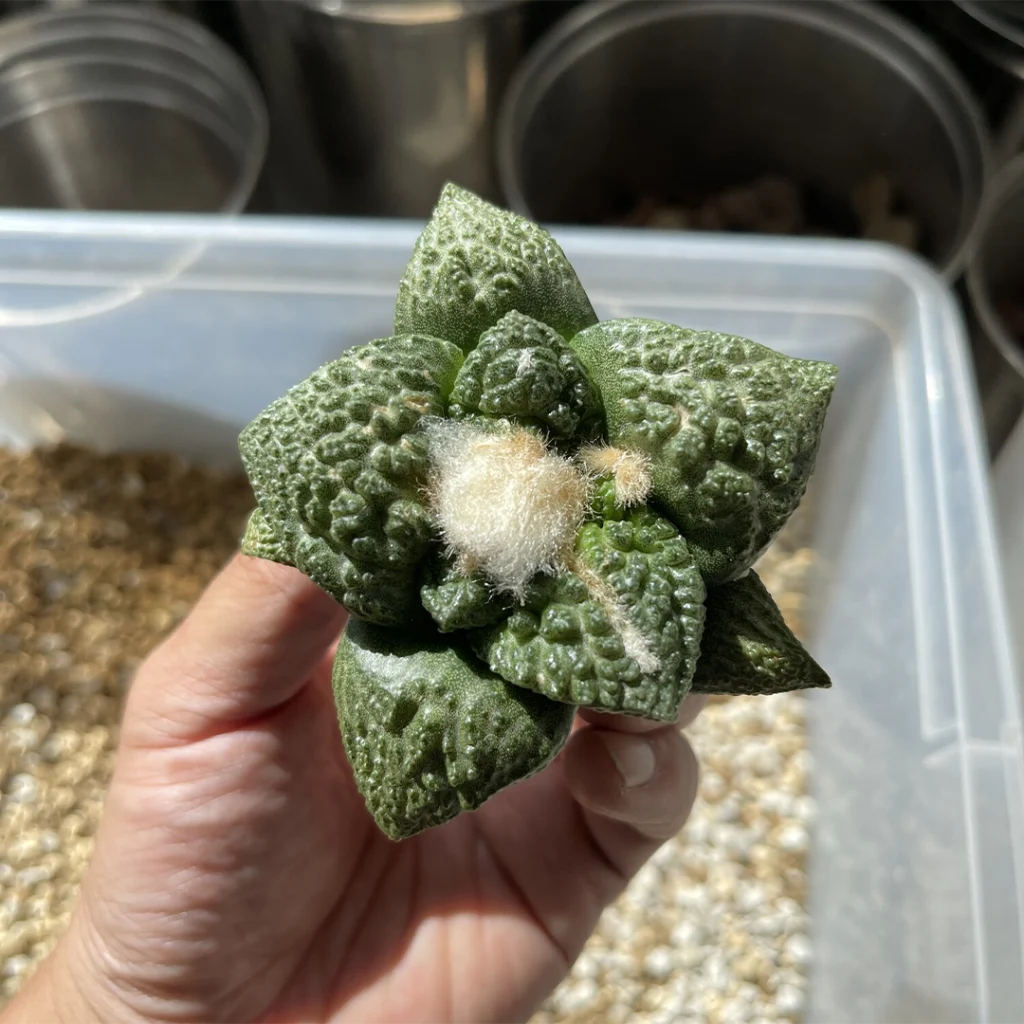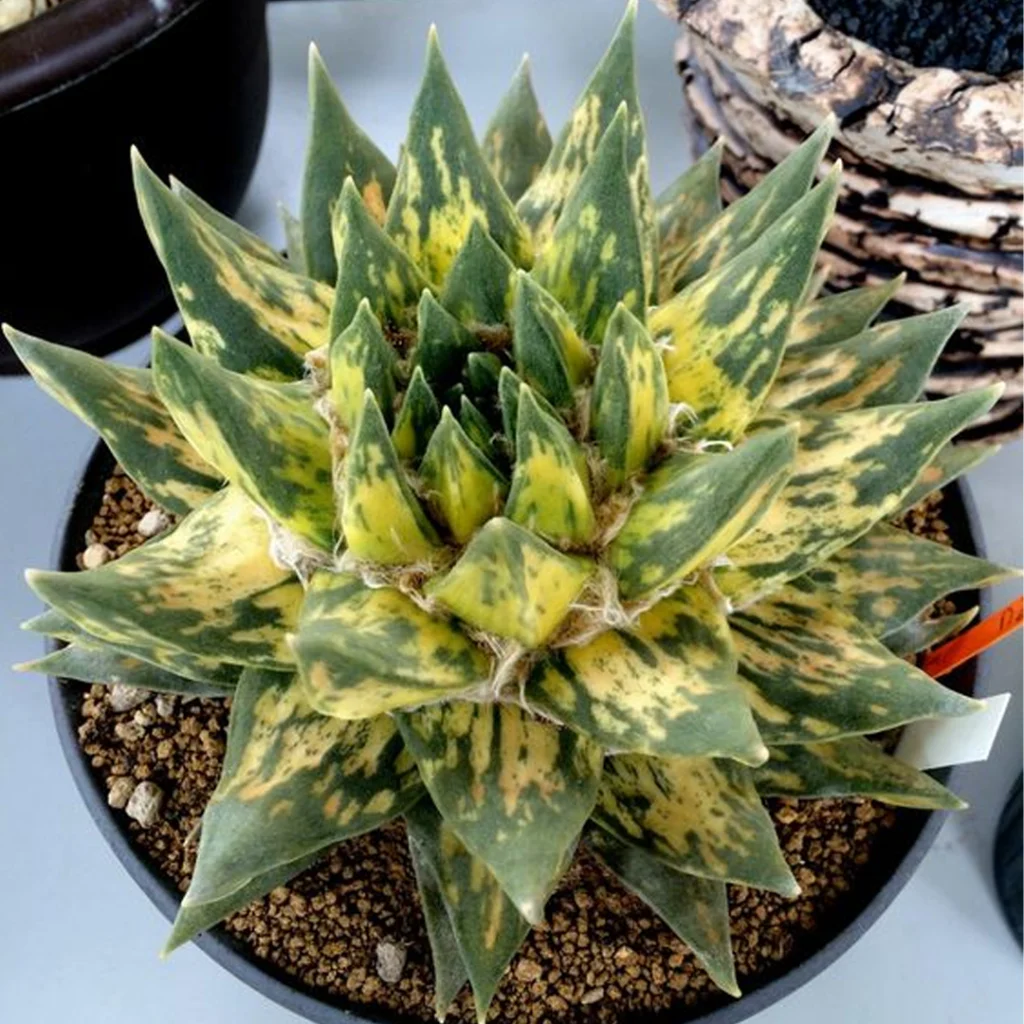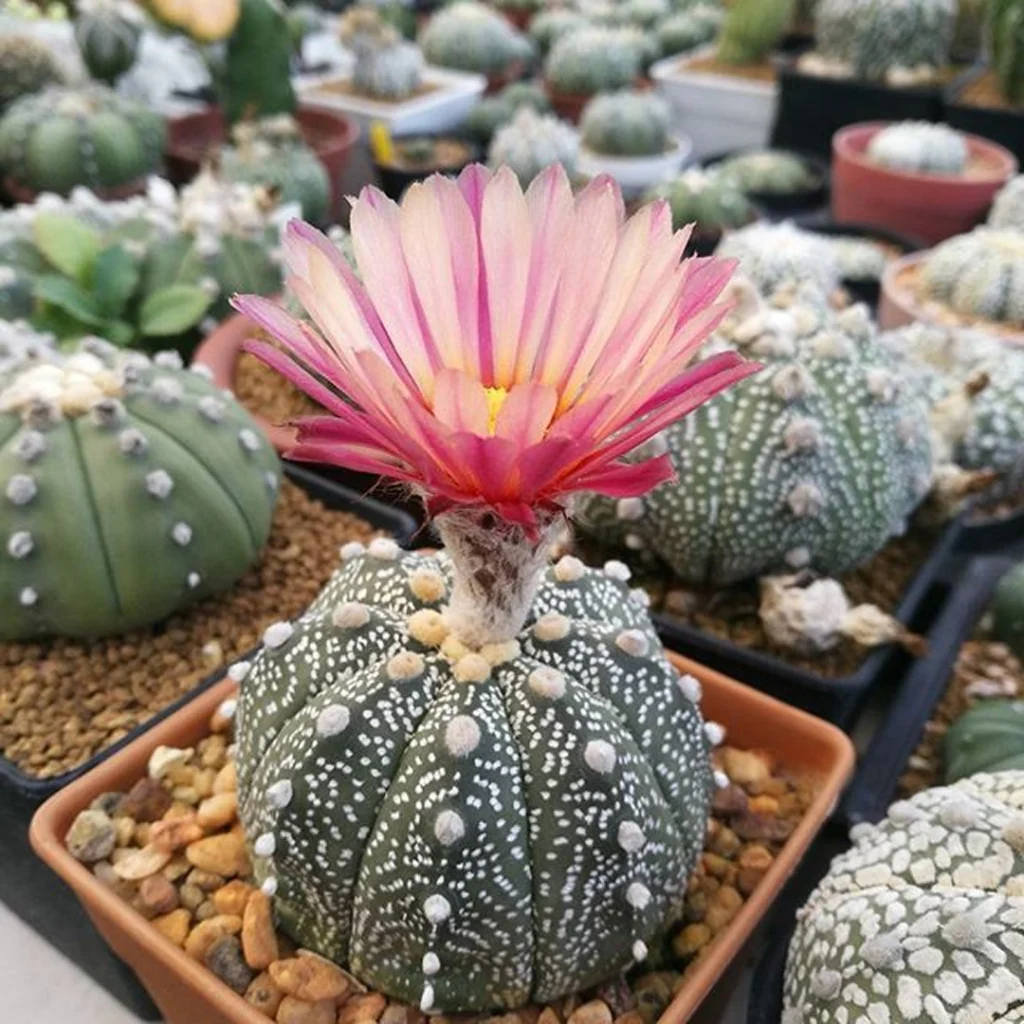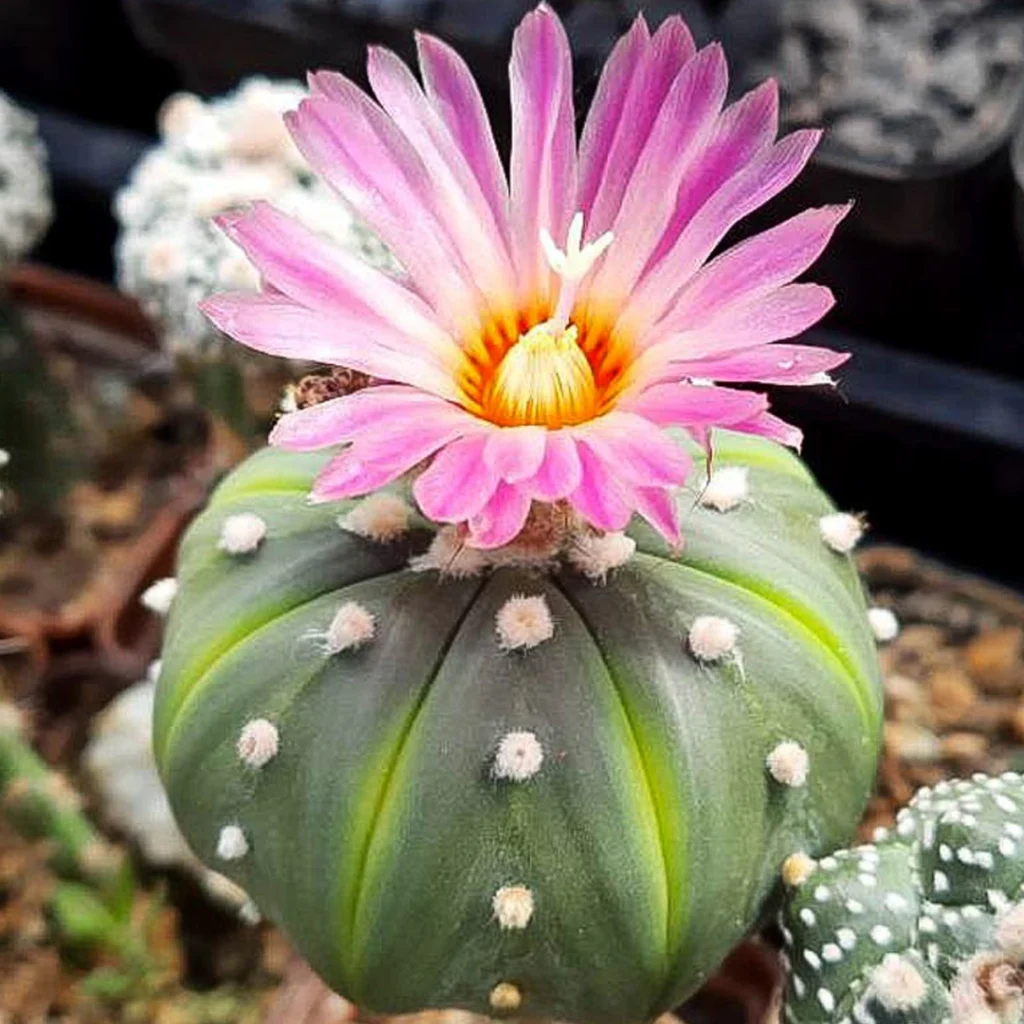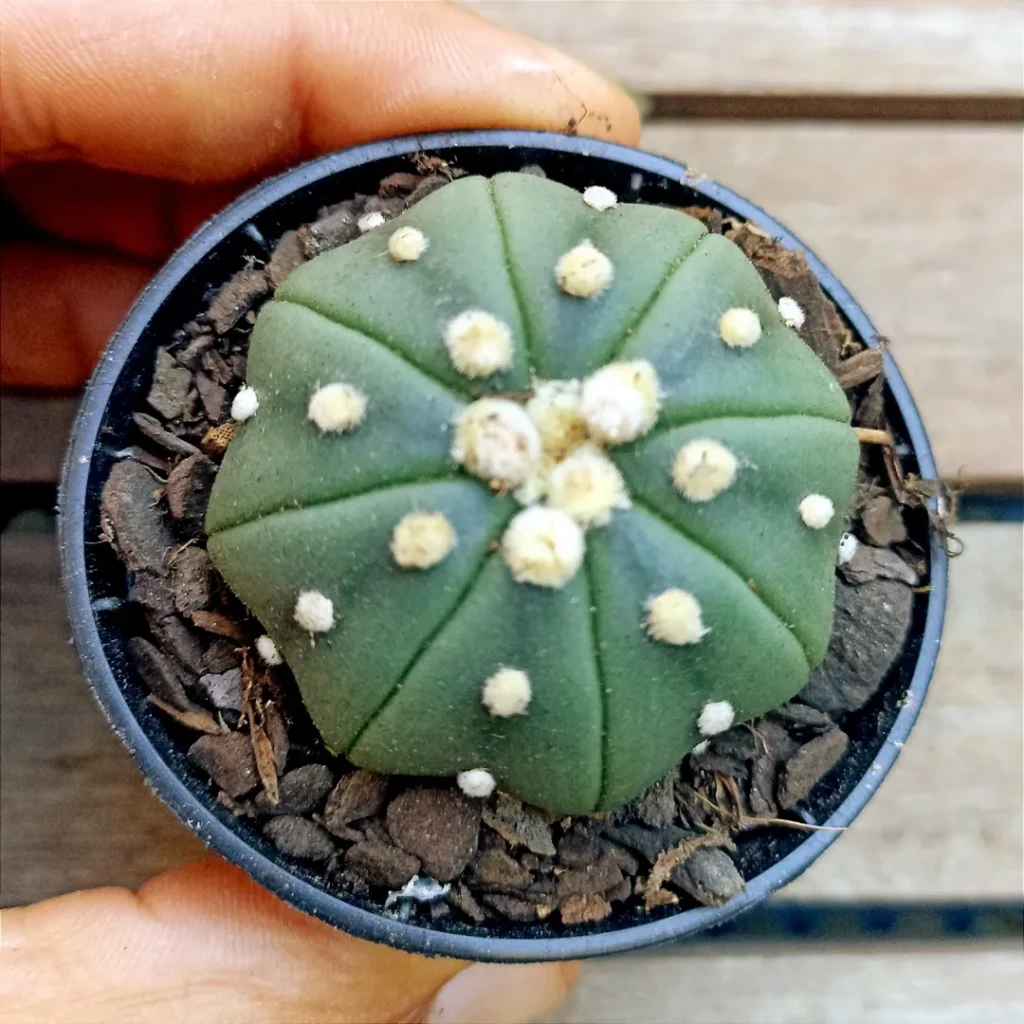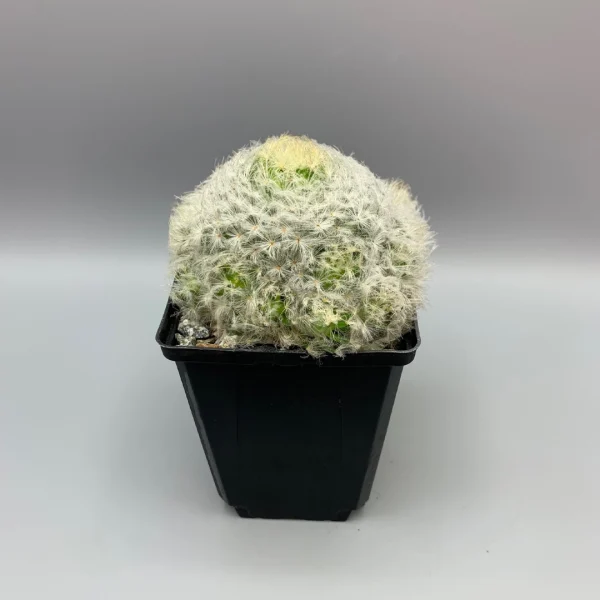Mammillaria plumosa, commonly known as the Feather Cactus, is a distinctive species native to northeastern Mexico. This compact cactus is famous for its unique, feathery spines that form a soft, fluffy appearance, giving it a delicate and ornamental look. Despite its fragile appearance, the Feather Cactus is quite hardy and well-suited for indoor cultivation.
This species typically grows in small, rounded clusters of individual stems, each covered with soft, white, plume-like spines that help protect it from harsh sunlight in its native habitat. During the blooming season, it produces small, creamy-white to pale yellow flowers that emerge between the spines, adding charm and elegance to this already beautiful plant.
How to Care
- Light: Prefers bright, indirect sunlight. Avoid harsh direct sunlight, which may scorch the delicate spines.
- Watering: Water sparingly, allowing the soil to dry completely between waterings. Reduce watering in the winter.
- Soil: Use well-draining cactus or succulent soil with added sand or pumice to prevent water retention.
- Temperature: Thrives in temperatures between 20°C and 30°C (68°F to 86°F). Protect from frost and maintain above 10°C (50°F).
- Fertilizer: Feed monthly with a diluted cactus fertilizer during the active growing season (spring and summer). Skip feeding during dormancy in winter.
- Repotting: Repot every 3-4 years or when the plant outgrows its pot. Handle with care to avoid damaging the delicate spines.
- Propagation: Propagate by separating offsets or growing from seeds. Offsets are the easiest method for home gardeners.

